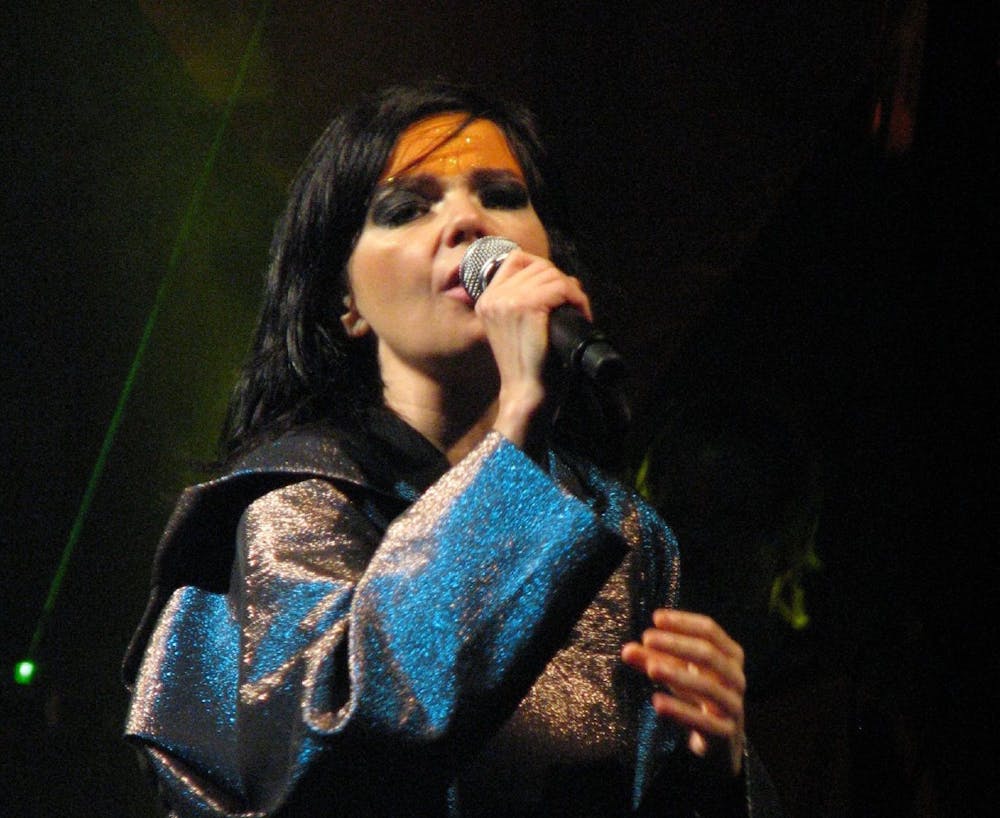It is rare to find an artist whose 10th album sounds as singular and innovative as their first. It may be rarer, though, to find an artist who can create a fungal concept album to excitement and acclaim. Such is the case with Björk’s new record Fossora, a dense yet effulgent exploration of motherhood, connection and legacy.
The title, Bjork’s own neologism, takes its form from the Latin word for “digger.” Through this archeologist of sorts, Björk leads the listener into the world of the record, one of fungi, bass clarinets and plant-inspired techno. Where Björk’s last record, the fantastically airy Utopia, focused on nebulous ideals — and indeed utopias — Fossora delves into much heavier and grounded material.
The central concept of the album revolves around fungi’s rooted and interconnected nature. Björk ties this idea of fungal networks to humanity’s own ability to find connection despite isolation during the recent pandemic. She further sings of solace in putting down her roots in her native home of Iceland.
Remarkably, Björk matches the fungal theme not only thematically but sonically as well. From the album’s first single and opening track “Atopos,” described by Björk as “Fossora’s passport,” the listener is met at once with a heavy bass beat and bass clarinet sextet. Bringing about the theme of interconnectedness, she opens the record lamenting, “Are these not just excuses to not connect?” The song, with its bass swelling over the course of its length, turns its focus from the fantastically eerie woodwinds to an intense gabber beat, as Björk tries to find hope in connection.
However, this so-called “biological techno,” as dubbed by Björk and collaborator Kasimyn, makes few appearances on the record. Following the opening track, the record turns primarily to slower songs, where Björk’s voice finds its place among delicate string arrangements and the same whimsical clarinets. Rarely do these songs have any recognizable structure; they are mostly composed of several verses with few having a chorus.
One such song that stands out on the album and in Björk’s immense discography is the sweeping “Ancestress.” Chronicling her late mother’s death, Björk is accompanied by her son Sindri Eldon as they sing of life and legacy. Intended as a funeral song, she sings of pacemakers and visits to the doctor intermixed with beautiful lines celebrating and commemorating her mother’s life.
It is this idea of motherhood and familial legacy that elevates Fossora beyond simply being a fungal concept album. The inclusion of her own children on tracks such as “Ancestress” and album closer “Her Mother’s House” adds to these poignant sentiments on maternity. The latter track sees Björk bidding farewell to her youngest child as she departs for college. In this manner, from commemorating her late mother to watching her last child leave home, Fossora finds Björk discovering her place between generations of women.
Between these personal tracks, there are some similarly noteworthy, though somewhat curious, interludes, which may be bewildering for new Björk listeners. The lurching first interlude, “Mycelia,” is reminiscent of Björk’s 2004 acapella record Medúlla with its chopped and processed vocals. The second interlude “Trölla-Gabba” continues this whimsy but includes a beat and a much heavier sound, almost resembling a cut from one of Arca’s several 2021 releases.
While the inclusion of these interludes adds to the world and feel of the record, some tracks feel as though they might belong elsewhere. The track “Allow,” for example, seems a touch out of place sonically, made in the sessions for Björk’s prior record Utopia. Though fantastic, the airy flutes and breathy vocals contrast starkly with the grounded and almost heavy sound of the majority of the record. “Allow” is one of the album's only sonic meanderings, especially following the richly textured and earthy “Victimhood.”
All in all, Fossora relishes in its own eccentricities and idiosyncrasies. While she does not necessarily reinvent the wheel here, Björk’s music remains as innovative and singular as ever. Where her music often looks forward, or at least gestures toward the future, Fossora seems content in the present. It is a story of legacies and finding home and stability in a rapidly evolving and sterile world. And so, while Fossora might not reach the towering heights of Björk’s legendary records like Homogenic or Vespertine, it is still a beautiful and worthwhile addition to her discography.





